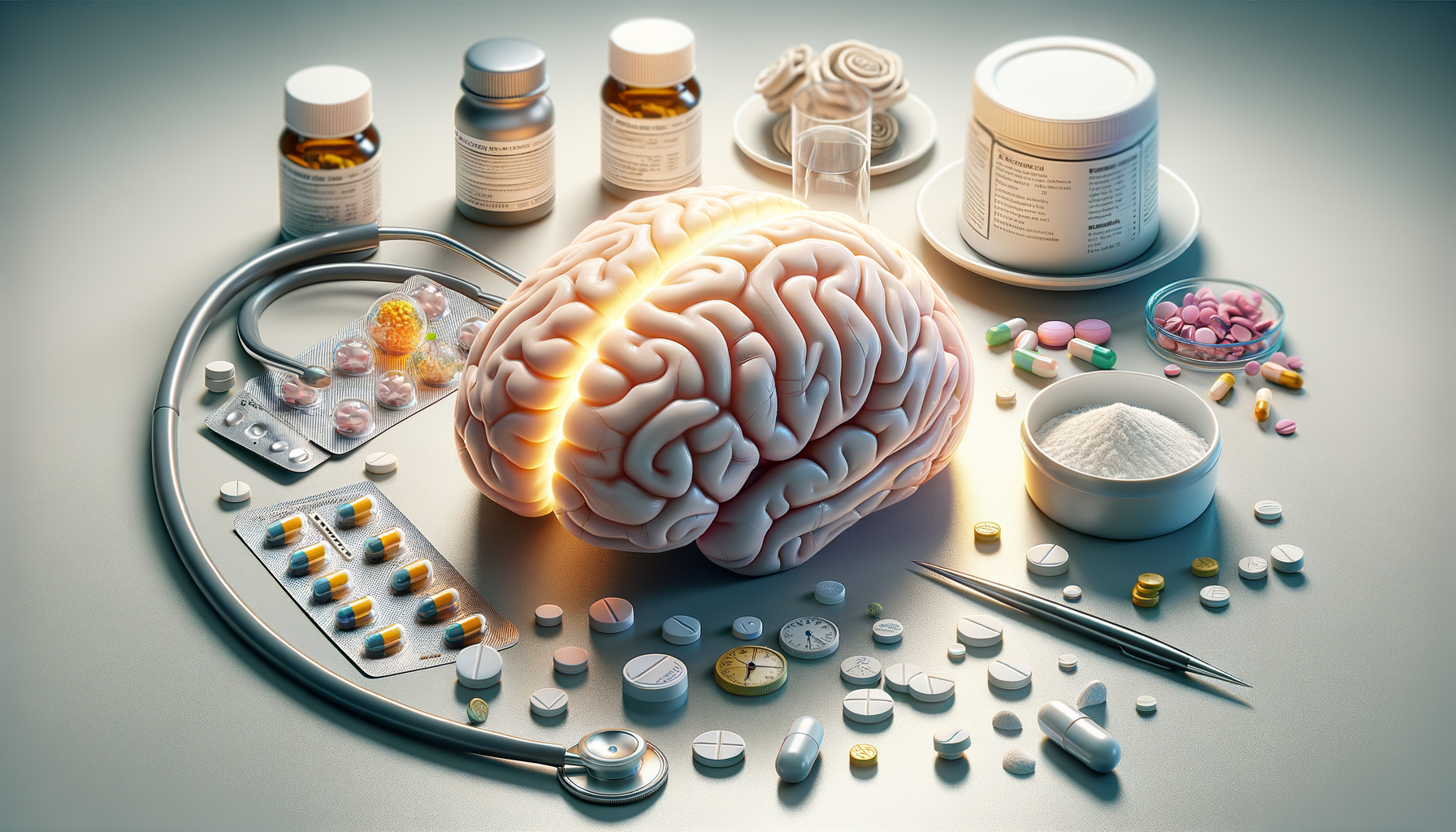Understanding Dementia and Its Impact
Dementia is a complex syndrome characterized by a decline in cognitive function, affecting memory, thinking, orientation, comprehension, calculation, learning capacity, language, and judgment. It primarily affects older adults, although it is not a normal part of aging. The impact of dementia is profound, not only on those diagnosed but also on their families and caregivers. The symptoms can be distressing and challenging, leading to a significant decline in the quality of life.
Globally, dementia is a major cause of disability and dependency among older people, with millions affected each year. The World Health Organization estimates that around 50 million people live with dementia worldwide, and this number is projected to triple by 2050. This growing prevalence underscores the importance of effective management strategies, including medication, to mitigate symptoms and enhance patient well-being.
The economic impact of dementia is substantial, with costs stemming from medical care, caregiving, and lost productivity. As such, understanding and implementing effective treatment options, including pharmacological interventions, is vital for managing this condition. This article delves into the role of medication in dementia treatment, exploring various types, their efficacy, and considerations for their use.
Types of Medications for Dementia
Medications for dementia aim to alleviate symptoms, slow progression, and improve quality of life. There are several classes of drugs commonly used in treatment:
- Cholinesterase Inhibitors: These medications, such as donepezil, rivastigmine, and galantamine, work by increasing levels of acetylcholine, a neurotransmitter involved in memory and learning. They are often prescribed for mild to moderate Alzheimer’s disease and have shown efficacy in improving cognitive function and daily living activities.
- NMDA Receptor Antagonists: Memantine is the primary drug in this category, used for moderate to severe Alzheimer’s disease. It works by regulating glutamate activity, which can help with memory and learning. Memantine is often used in conjunction with cholinesterase inhibitors for enhanced benefits.
- Antipsychotics: Though not specifically approved for dementia, antipsychotics may be used to manage severe behavioral symptoms such as aggression and psychosis. However, they come with significant risks and side effects, necessitating careful consideration and monitoring.
- Antidepressants and Anxiolytics: These are used to manage mood disorders and anxiety, which are common in dementia patients. Selective serotonin reuptake inhibitors (SSRIs) are often preferred due to their favorable side effect profile.
Each medication type has its indications, benefits, and potential side effects, making it crucial for healthcare providers to tailor treatment plans to individual patient needs. The choice of medication depends on the type of dementia, symptom severity, and patient response to treatment.
Efficacy and Limitations of Dementia Medications
While medications for dementia can provide significant benefits, their efficacy varies among individuals, and they are not a cure. Cholinesterase inhibitors, for instance, may offer modest improvements in symptoms but do not halt disease progression. Similarly, memantine can help with cognitive symptoms but does not reverse the condition.
Clinical trials and studies have shown that these medications can improve quality of life and delay the need for institutional care. However, their effectiveness often diminishes over time, and not all patients respond favorably. Additionally, side effects such as nausea, diarrhea, dizziness, and increased risk of falls can limit their use in some patients.
It’s important for healthcare providers to weigh the potential benefits against the risks and to monitor patients closely for adverse effects. Regular assessments of cognitive function and symptom progression are essential to adjust treatment plans as needed. Non-pharmacological interventions, such as cognitive therapy, lifestyle changes, and support for caregivers, are also critical components of a comprehensive treatment strategy.
Considerations in Medication Management
Managing medication for dementia requires a careful and individualized approach. Several factors must be considered to optimize treatment:
- Type of Dementia: Different forms of dementia, such as Alzheimer’s, vascular dementia, and Lewy body dementia, may respond differently to medications. Tailoring treatment to the specific type can improve outcomes.
- Patient Health and Comorbidities: Patients with dementia often have other health conditions that can affect medication choices. For example, cardiovascular issues may influence the use of certain drugs due to potential interactions or side effects.
- Patient and Family Preferences: Involving patients and their families in decision-making is crucial. Understanding their goals and preferences can guide treatment choices and improve adherence.
- Regular Monitoring and Adjustment: Ongoing assessment of medication efficacy and side effects is vital. Adjustments may be necessary based on the patient’s changing condition and response to treatment.
Effective communication among healthcare providers, patients, and caregivers is essential for successful medication management. Education about the potential benefits and risks of medications, as well as realistic expectations, can help manage the complex journey of dementia treatment.
Future Directions in Dementia Treatment
The field of dementia treatment is evolving, with ongoing research aimed at finding more effective therapies. Advances in understanding the biology of dementia have led to the development of new drug candidates targeting underlying disease mechanisms. These include:
- Beta-Amyloid and Tau Protein Targeting: Research is focusing on drugs that target these proteins, which are believed to play a key role in Alzheimer’s disease pathology. While some trials have shown promise, challenges remain in developing effective treatments.
- Immunotherapy: This approach involves using the body’s immune system to target and remove toxic proteins. Clinical trials are underway to evaluate the safety and efficacy of various immunotherapy agents.
- Gene Therapy: Advances in genetics have opened up possibilities for gene-based therapies that could potentially alter the course of dementia. These are still in early stages of research but hold promise for the future.
In addition to pharmacological advancements, there is a growing emphasis on holistic approaches to dementia care. Integrating lifestyle interventions, such as diet, exercise, and cognitive training, with medication may offer synergistic benefits. As research continues, the hope is to develop treatments that not only alleviate symptoms but also modify the disease process, ultimately improving outcomes for individuals with dementia.




Leave a Reply